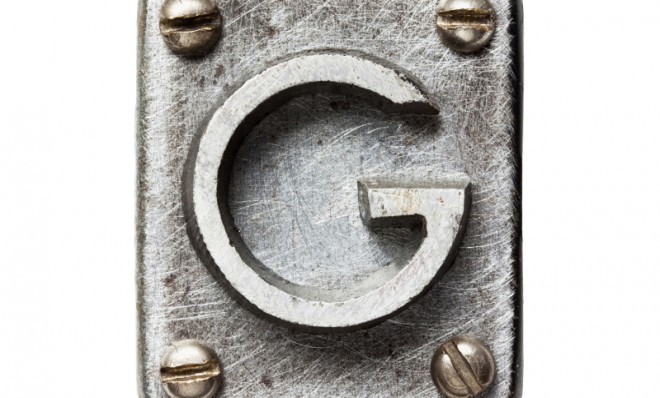Why are there two pronunciations for the letter 'G'?
In English, words beginning with 'g' can have a soft (giraffe) or hard (give) pronunciation. And therein lies the problem.


A free daily email with the biggest news stories of the day – and the best features from TheWeek.com
You are now subscribed
Your newsletter sign-up was successful
At the Webby Awards on Tuesday, Steve Wilhite, creator of the Graphics Interchange Format, asserted his authority in the controversial matter of the proper pronunciation of GIF. His five word acceptance speech for a lifetime achievement award was unambiguous and forceful : "It's pronounced 'JIF,' not 'GIF.'" Proponents of the soft-g cheered, while those in the hard-g camp rejected Wilhite's authority, saying that they will continue to damn well say it as they please.
On phonetic grounds, a case can be made for either pronunciation. In English, words beginning with 'g' can have a soft (giraffe) or hard (give) pronunciation, and therein lies the problem. Why are there two g's? And are there any rules governing which one is correct?
We should be glad there are only two alternatives. When the 'g' was first used to write Old English, it stood for four different sounds: a hard g, a soft g, a 'y' sound as in "yes," and a sort of soft gargle we no longer use in English (a voiced velar fricative).
The Week
Escape your echo chamber. Get the facts behind the news, plus analysis from multiple perspectives.

Sign up for The Week's Free Newsletters
From our morning news briefing to a weekly Good News Newsletter, get the best of The Week delivered directly to your inbox.
From our morning news briefing to a weekly Good News Newsletter, get the best of The Week delivered directly to your inbox.
During the Middle English period, we borrowed a lot from French, which used 'g' for a hard g before back vowels (a, o, u) and a soft g before front vowels (i, e). We started to use 'g' in the French way, while another letter (the insular g) took over spelling for the other sounds, before they disappeared or turned into other things.
So we have two g's because French had two g's. Are the rules governing which pronunciation to use the same as the French ones? Not quite. Much of English vocabulary comes from French, but not all of it, and that's where it gets complicated for 'g.' But there are some rules to go by:
1. Hard g before a consonant (glad, great)
2. Hard g before a back vowel (go, garden, gum)
A free daily email with the biggest news stories of the day – and the best features from TheWeek.com
3. Hard g at the end of a word (big, frog, leg)
4. Hard g if it's a Hebrew name (Gideon, Giliad)
5. Hard g before a front vowel in most words of Germanic origin (gift, get, gild)
6. Soft g for a word of Greek origin that starts with gy- (gymnasium, gymnastics, gyroscope). However! There is an exception to this rule for 'gynecology' and other 'gyn-' words.
7. Soft g before a front vowel if the word has a Romance origin (geography, giant, ginger, general)
SO WHERE DOES GIF FIT IN?
As a word with a g before a front vowel, there are four possible rules (4-7 above) that could apply: hard g if the word origin is Hebrew or Germanic, soft g if it's Greek or Romance. But, alas, GIF is rootless! An etymological golem built from spare parts! And so we are left in a lawless tundra, with no code to live by.
And this is when we start to attack each other.
Some look to the soft g Romans for guidance and some to the hard g Visigoths. Others may side with the hard g Maccabee army or the soft g Greek army. Whoever conquers the land of GIF will be rewarded with plentiful natural reserves of kittens and celebrities. Unfortunately, the prospects don't look good for peace.
Arika Okrent is editor-at-large at TheWeek.com and a frequent contributor to Mental Floss. She is the author of In the Land of Invented Languages, a history of the attempt to build a better language. She holds a doctorate in linguistics and a first-level certification in Klingon. Follow her on Twitter.
-
 Political cartoons for February 3
Political cartoons for February 3Cartoons Tuesday’s political cartoons include empty seats, the worst of the worst of bunnies, and more
-
 Trump’s Kennedy Center closure plan draws ire
Trump’s Kennedy Center closure plan draws ireSpeed Read Trump said he will close the center for two years for ‘renovations’
-
 Trump's ‘weaponization czar’ demoted at DOJ
Trump's ‘weaponization czar’ demoted at DOJSpeed Read Ed Martin lost his title as assistant attorney general
